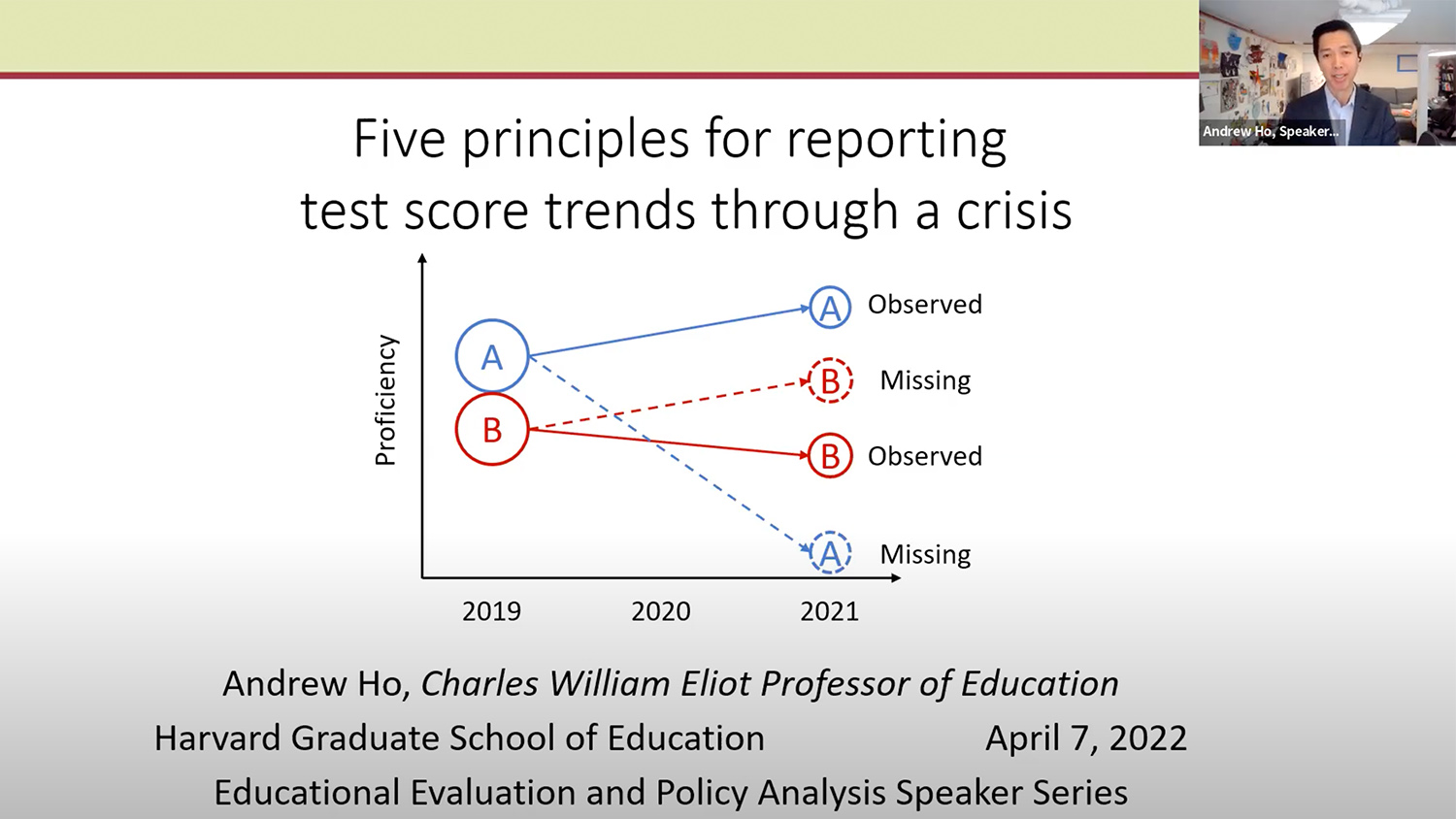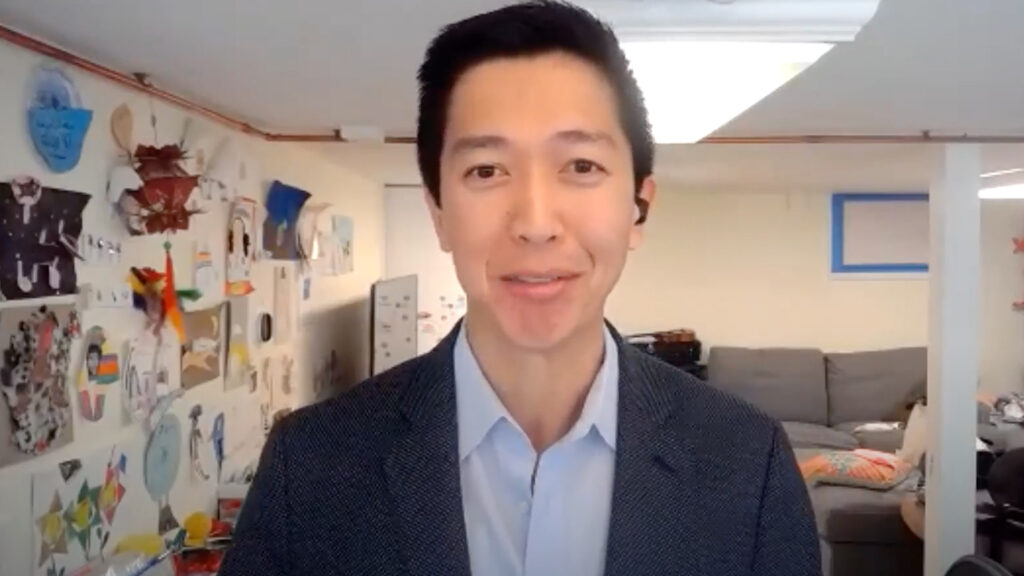NC State’s EEPA Speaker Series Highlights Data-driven Decision-making and Equity Principles for Changing Times
Two doctoral students, Christy Batts and Julie Whetzel, write about lessons learned during the EEPA Speaker Series.

Editor’s Note: The following is written by two doctoral students in the Ph.D. in Educational Leadership, Policy, and Human Development educational evaluation and policy program area of study.
By Christy Batts and Julie Whetzel
This spring at NC State’s College of Education, the Educational Evaluation and Policy Analysis program sponsored a speaker series to foster community interest in education policy research. Two of the nation’s leading scholars were invited to speak and engage with the NC State community and education stakeholders about their high-impact, timely, and critically important work. On April 7, Andrew Ho, Ph.D., of Harvard University presented a talk titled “Five principles for reporting test score trends through a crisis.” Then, on May 5, Cynthia Coburn, Ph.D., of Northwestern presented “Constraints, values, and information: The dynamics of school district decision making.”

Ho is a board member of the National Assessment of Education Progress. As a psychometrician, he aims to improve the design, use, and interpretation of test scores in educational policy and practice. In presenting “Five principles for reporting test score trends through a crisis,” Ho highlights the need to account for changes in population, motivation, administration, constructs, and attribution, especially in the post-pandemic testing landscape.
He urges us to keep in mind the students who are no longer enrolled in public school and how they might have performed on student achievement tests if they had remained enrolled. A focus on changing populations assists in maintaining perspective for determining resource allocations.
Because of pandemic-caused learning loss, it is a challenge to “report scores that motivate support for necessary progress without blaming leaders, teachers, parents, and students for circumstances beyond their control,” but one worth the effort. Finally, he enjoins us to remember the kids who are not here and cautions us to avoid inaccurate metrics in lieu of simplicity, saying “I’d rather be complicated than wrong.”

Coburn spoke on a paper she co-authored in the American Educational Research Journal. The study, “Constraints, values, and information: The dynamics of school district decision making,” uses deliberative democracy as a framing theory to recognize the process by which policies are made.
Coburn talks about the many mini-decisions that direct decision trajectories, and the implicit and explicit language that is invoked, saying that “race, class, and language discourses were layered with values-based reasons, and most often addressed structural challenges to equity.”
Coburn pulls back the curtain on how the school district in her study makes a consequential decision to de-track high school math in the name of equity, and how this decision supports the perspective that “district leaders are not passive recipients of their environment, they are actors in their environment as well.”
After analyzing over 350 hours of meetings, Coburn and her team find evidence that, while it is possible for district leaders to focus on structural and systemic problems, solutions often do not address institutional inequities. She urges us to remember that “having an equity focus might be a necessary, but not sufficient condition to have deliberations in ways that really focus on structural and systemic inequality and ways of overcoming it.”

In feedback shared after each event, attendees expressed appreciation for the relevance of the speaker’s topics. The series successfully provided a discussion platform addressing issues and trends applicable to education leaders today. Our personal takeaway is: because decisions of consequence are based on unique district data, it is important to know and recognize what data are measuring, and who the data represent, as this will inform which policies are made and most importantly, if structural systems of inequity are working toward solutions.
Each talk was attended by approximately 30 registrants and garnered interest by more than 115 education leaders across the state. The organizing committee looks forward to replicating the success of this speaker series in the coming academic year. Recordings of each speaker, as well as the papers they reference, can be found on the EEPA Speaker Series page.
- Categories:


